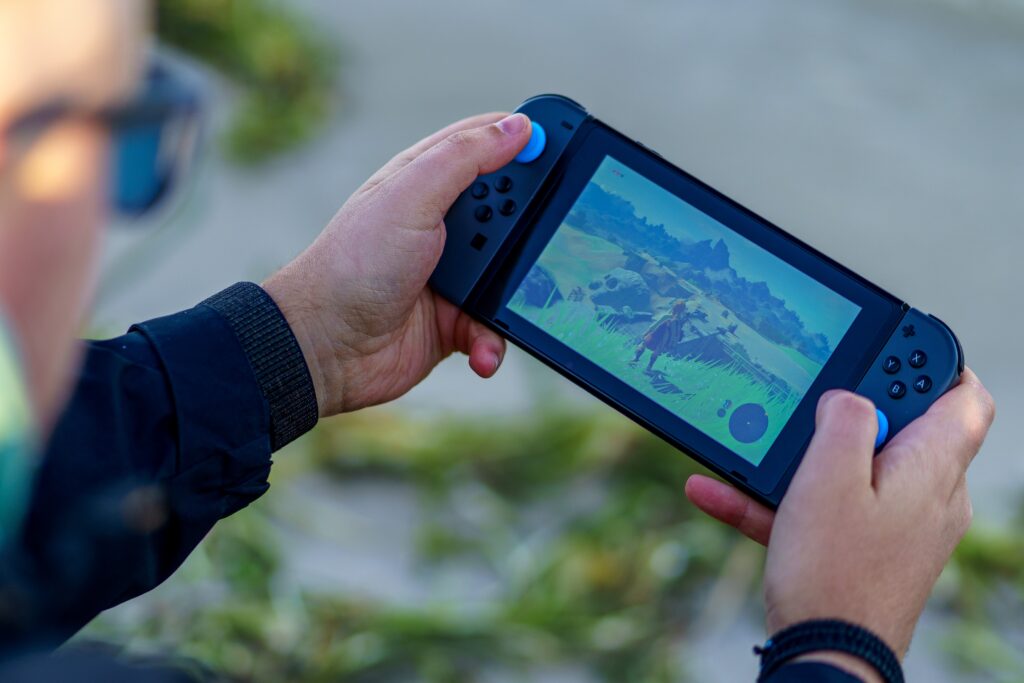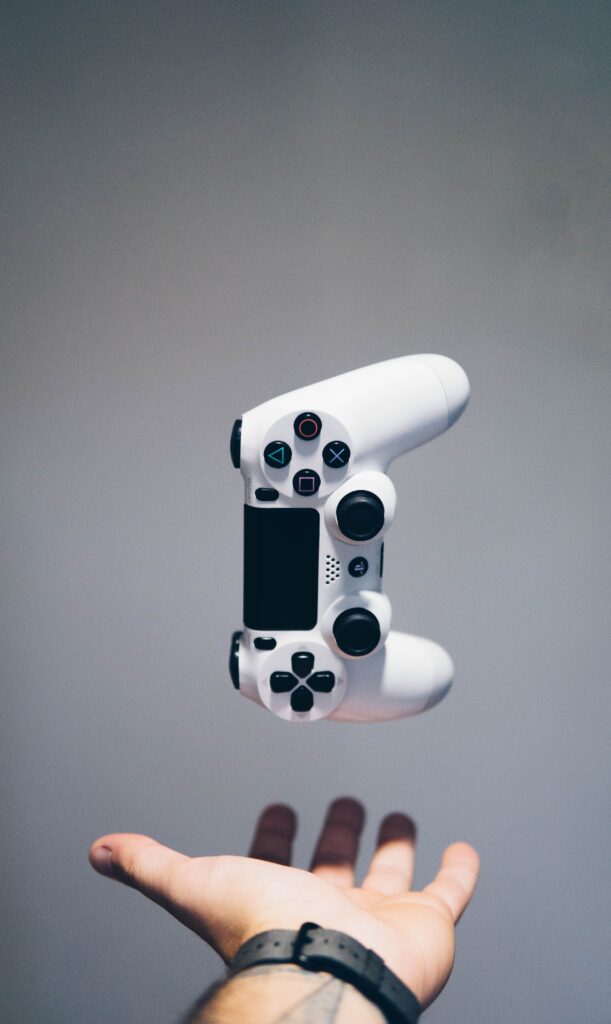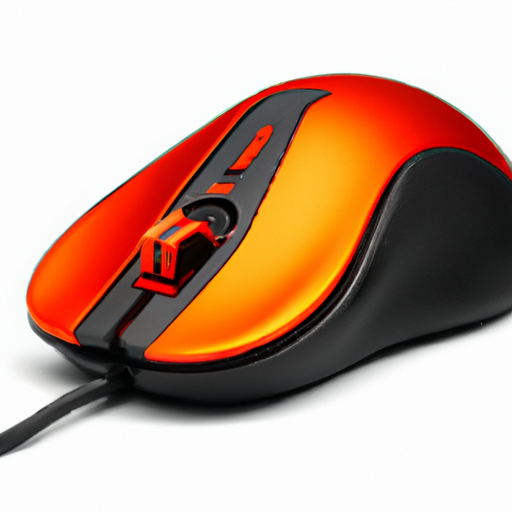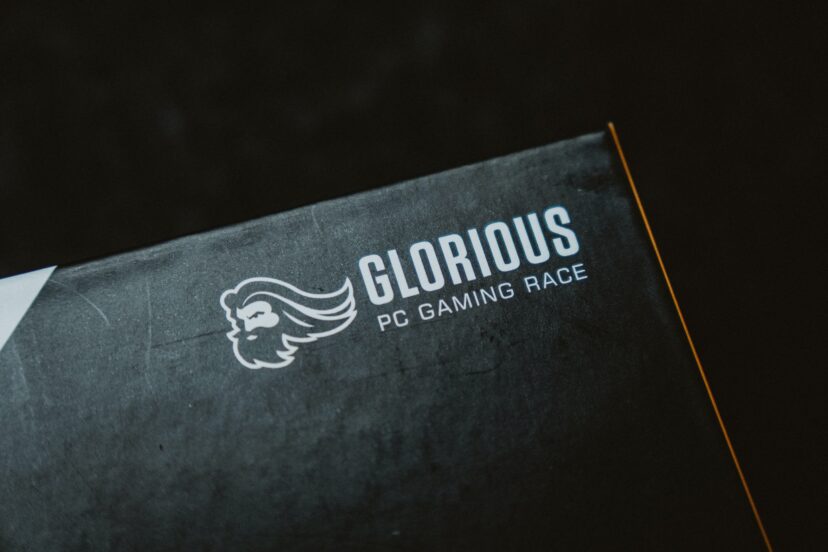Are Lighter Mice Better For Gaming? 21 Things You Should Consider
In the competitive world of gaming, optimizing every aspect of your setup can be a game-changer. While the spotlight often shines on high-end graphics cards and lightning-fast processors, one component that frequently gets less attention—but holds significant impact—is the gaming mouse. So, it’s time to delve into a critical query that could transform your gameplay: “Are lighter mice better for gaming?”
The weight of your mouse might seem like a trivial matter, but as we’ll unveil in this article, it can profoundly affect your gaming performance across various genres. Lighter mice offer distinct advantages, such as improved agility and reduced arm fatigue, which can be especially beneficial in first-person shooter games or any genre requiring quick, precise movements. But the debate doesn’t end there; lighter mice also come with their own set of potential drawbacks, like less control for some users, or durability concerns.
We’ll guide you through the nuances, exploring the science and ergonomics behind mouse weight, its impact on your gameplay, and how personal preferences like grip style and hand size play a role. Moreover, we’ll dig into advancements in mouse technology that address common counterarguments against lighter mice.
So if you’re serious about taking your gaming skills to the next level, read on. This comprehensive look into the world of lighter gaming mice aims to give you all the insights you need to make an informed choice. After all, it might just be the edge you’ve been looking for to elevate your gaming prowess.
Advantages of Lighter Mice for Gaming
Improved Speed and Agility
One of the main advantages of using a lighter mouse for gaming is the improved speed and agility it offers. With less weight to move, you can make quick and precise movements on your mousepad. This can be especially beneficial in fast-paced games that require swift reflexes and rapid mouse movements. A lighter mouse allows you to react more quickly to in-game situations, giving you a competitive edge over your opponents.
Less Fatigue during Long Gaming Sessions
Another significant advantage of lighter mice is the reduced fatigue they can provide during long gaming sessions. When using a heavier mouse, the constant strain and effort required to move it can lead to muscle fatigue and discomfort. However, a lighter mouse puts less strain on your hand and arm, allowing you to play for extended periods without feeling as tired. This can greatly enhance your gaming endurance and overall comfort during intense gaming sessions or tournaments.
Enhanced Precision and Accuracy
Lighter mice can also enhance your precision and accuracy while gaming. With less weight to manage, it becomes easier to control the movement of the cursor or crosshair on the screen. This can be particularly advantageous in shooter games, where precise aiming is crucial. The lighter weight allows for more precise micro-adjustments and smoother tracking, resulting in enhanced accuracy. Whether you’re sniping enemies from a distance or engaging in close-quarters combat, a lighter mouse can significantly improve your aiming capabilities.
Easier to Carry and Transport
Lastly, lighter mice are easier to carry and transport, making them more convenient for gamers on the go. Whether you’re attending a LAN party or gaming at a friend’s house, a lighter mouse is less bulky and cumbersome to transport. The compact size and reduced weight make it easier to fit in your bag or backpack, allowing you to bring your favorite gaming mouse wherever you go. This portability ensures that you can enjoy consistent and familiar gaming experiences, regardless of your location.
Are Lighter Mice Better For Gaming: Factors to Consider
Personal Preference
When choosing the weight of your gaming mouse, personal preference plays a significant role. Some gamers prefer the stability and heftiness of heavier mice, while others opt for the nimbleness and quickness provided by lighter options. Ultimately, it’s essential to consider your own comfort and find a weight that suits your gaming style and preferences.
Game Genre and Playing Style
Different game genres and playing styles can influence the ideal mouse weight for optimal performance. For example, in games that require precise aiming and tracking, such as first-person shooters, a lighter mouse may be more beneficial. On the other hand, in games that require slower, strategic movements, a heavier mouse can provide greater stability. Consider the types of games you play most frequently and choose a mouse weight that aligns with the demands of those genres.
Hand Size and Grip
Another crucial factor to consider is your hand size and grip. Larger hands may find it more comfortable to use heavier mice, as they provide better palm support and fill up the hand more effectively. Conversely, smaller hands might benefit from the maneuverability and ease of use provided by lighter mice. Additionally, different grip styles, such as palm grip, claw grip, or fingertip grip, can influence the optimal weight for your gaming mouse.
Mouse Sensor and DPI
The mouse sensor and DPI (dots per inch) settings are also factors to consider when choosing the weight of your gaming mouse. Higher DPI settings require less physical movement of the mouse to cover more significant distances on the screen. In this case, a lighter mouse can complement the increased sensitivity of the sensor, allowing for more precise and effortless control. However, if you prefer lower DPI settings, a heavier mouse can provide more stability and control.
Mousepad and Surface
The mousepad or surface you use for gaming can impact the ideal weight of your mouse. A smoother and faster surface may pair well with a lighter mouse, as it allows for swift and precise movements. Conversely, a textured or slower surface might benefit from the added weight and stability of a heavier mouse. Consider the type of mousepad or surface you use and choose a mouse weight that complements its characteristics.
Build Quality and Durability
While weight is an essential consideration, it’s crucial not to overlook the build quality and durability of a gaming mouse. A lightweight mouse can still provide excellent performance and reliability if it is constructed using high-quality materials. Ensure that the mouse you choose is built to withstand long gaming sessions and repetitive use, regardless of its weight.
Are Lighter Mice Better For Gaming: Effects of Mouse Weight on Gaming Performance
Impact on Aim and Tracking
The weight of your gaming mouse can significantly impact your aim and tracking abilities. A lighter mouse allows for quicker and more precise movements, making it easier to track moving targets or aim quickly in high-pressure situations. The reduced weight minimizes the effort required to move the mouse, resulting in enhanced accuracy and improved overall aim.
Mouse Control and Flick Shots
Mouse control, especially during flick shots or quick flicking movements, is influenced by the weight of the mouse. Lighter mice offer greater control and maneuverability, allowing for more accurate flick shots. With less weight to manage, you can execute quick and precise flicks to eliminate enemies or respond swiftly to unexpected in-game events. The reduced effort required to move the mouse translates into improved control and increased flick shot consistency.
Response Time and Reaction Speed
The weight of your gaming mouse can also impact your response time and reaction speed. In fast-paced games, where split-second decisions can determine the outcome, a lighter mouse enables faster reaction times. With reduced weight, you can quickly reposition your cursor or crosshair, react to enemy movements, and execute actions more rapidly. This can be particularly advantageous in competitive gaming scenarios, where every millisecond counts.
The Role of Mouse Sensitivity in Lighter Mouse Performance
Adjusting DPI Settings
Mouse sensitivity, often measured in DPI, plays a vital role in the performance of a lighter mouse. DPI refers to how many pixels the cursor moves on the screen for every inch of physical movement. When using a lighter mouse, you may need to adjust your DPI settings to achieve the desired level of sensitivity. Higher DPI settings can compensate for the reduced physical effort required to move a lightweight mouse, resulting in faster cursor movements and improved responsiveness.
Balancing Sensitivity and Mouse Weight
Finding the right balance between mouse sensitivity and weight is crucial for optimal performance. While a lighter mouse can provide increased speed and agility, excessively high sensitivity may lead to decreased accuracy and control. Experiment with different DPI settings and mouse weights to find the sweet spot that allows for precise and comfortable gameplay. It’s essential to strike a balance that maximizes your performance while maintaining control and accuracy.

Counterarguments to Having a Lighter Gaming Mouse
Lack of Stability and Control
A common counterargument against using a lighter gaming mouse is the perceived lack of stability and control. Some gamers prefer the added weight and stability provided by heavier mice, as it can result in more controlled and deliberate movements. However, advancements in lightweight mouse design have mitigated these concerns, with many lightweight models offering excellent stability and control, thanks to innovative weight distribution systems and improved construction.
Reduced Customization Options
Another counterargument is the potential reduction in customization options when using a lighter gaming mouse. Some heavier mice offer adjustable weights that allow gamers to customize the weight to their liking. While this level of customization may be limited in lighter mice, many manufacturers have focused on creating lightweight gaming mice with customizable features such as programmable buttons, adjustable RGB lighting, and customizable profiles. These options ensure that gamers can still personalize their gaming experience even with a lighter mouse.
Preference for Heavier Actuations
Certain gamers prefer the heavier actuation provided by mechanical switches in heavier mice. The tactile feedback and increased resistance of these switches can offer a satisfying and responsive gaming experience. However, it is worth noting that there are lightweight gaming mice available with mechanical switches specifically designed to provide a similar level of feedback and actuation force. Thus, gamers looking for the benefits of lighter mice can still enjoy the responsiveness and feel of mechanical switches without sacrificing weight.
Are Lighter Mice Better For Gaming: Anatomy of a Lightweight Gaming Mouse
Honeycomb Design
A prevalent feature in many lightweight gaming mice is the honeycomb design. This design incorporates hexagonal holes throughout the mouse’s shell, reducing weight without compromising structural integrity. The honeycomb design also allows for better airflow, preventing sweat buildup during intense gaming sessions. Additionally, the holes create a unique aesthetic appeal, often complemented by customizable RGB lighting.
Material and Construction
The material and construction of a lightweight gaming mouse are essential factors that contribute to its weight. Manufacturers employ various materials such as high-quality plastics or lightweight metals to reduce weight while maintaining durability. Advanced manufacturing techniques and engineering ensure that these materials are both lightweight and robust, offering a reliable and long-lasting gaming experience.
Weight-Reducing Strategies
To achieve optimal weight reduction, manufacturers incorporate a range of strategies in lightweight gaming mouse design. These include the strategic placement of weight-reducing components, the use of lightweight materials, and the elimination of unnecessary features. By carefully considering every element of the mouse’s design, manufacturers can successfully create a lightweight mouse without compromising performance or functionality.

Popular Lightweight Gaming Mouse Models
Logitech G Pro X Superlight
The Logitech G Pro X Superlight is a popular choice among gamers looking for a lightweight mouse. Weighing just 63 grams, it features Logitech’s Lightspeed wireless technology, HERO 25K sensor, and up to 70 hours of battery life. The ambidextrous design and customizable buttons make it suitable for various grip styles and preferences.
Razer Viper Ultimate
The Razer Viper Ultimate is another highly regarded lightweight gaming mouse. Weighing only 74 grams, it offers a high-precision 20K DPI Focus+ optical sensor, Razer’s Hyperspeed wireless technology, and up to 70 hours of battery life. The ambidextrous design, programmable buttons, and customizable Chroma RGB lighting make it a versatile and visually appealing choice.
Glorious Model O
The Glorious Model O is a lightweight gaming mouse known for its exceptional performance and aesthetics. Weighing approximately 67 grams, it features a high-precision 12K DPI optical sensor, Omron mechanical switches, and customizable RGB lighting. Its ergonomic shape and honeycomb design make it a popular option among gamers seeking both comfort and style.
Finalmouse Ultralight 2 Cape Town
The Finalmouse Ultralight 2 Cape Town is a highly sought-after lightweight gaming mouse. Weighing just 47 grams, it is one of the lightest mice on the market. It boasts a 3,200 DPI sensor, a unique ergonomic shape, and high-quality construction. However, due to its limited availability and high demand, it can be challenging to acquire.
SteelSeries Aerox 3 Wireless
The SteelSeries Aerox 3 Wireless is a lightweight wireless gaming mouse designed for both comfort and performance. Weighing around 66 grams, it features a TrueMove Air optical sensor, SteelSeries’ Quantum 2.0 wireless technology, and up to 200 hours of battery life. The IP54 water resistance rating and durable construction make it suitable for gamers who value reliability and longevity.
Tips for Transitioning to a Lighter Gaming Mouse
Gradually Decreasing Mouse Weight
Transitioning to a lighter gaming mouse can initially feel unfamiliar, especially if you’ve been using a heavier mouse for an extended period. To ease the transition, consider gradually decreasing the weight of your mouse over time. Many lightweight gaming mice come with optional removable weights, allowing you to adjust the weight to your preference. Start by removing a portion of the added weights, and gradually remove more as you become accustomed to the lighter feel.
Training and Adaptation Exercises
To adapt to a lighter gaming mouse, incorporating specific training and adaptation exercises can be helpful. Spend time practicing your aim, tracking, and flick shots to acquaint yourself with the increased speed and agility offered by a lighter mouse. Engage in aim training exercises, in-game practice, or utilize dedicated training software to improve your muscle memory and adjust to the new weight more quickly.
Experimenting with Mouse Grips
Different mouse grips can influence your comfort and performance when using a lighter gaming mouse. Experiment with various grips, such as palm grip, claw grip, or fingertip grip, to find the one that feels most natural and provides optimal control. Adjusting your grip style may require some time to adapt, but finding the right fit can significantly enhance your overall gaming experience with a lighter mouse.
Customizing and Fine-tuning Settings
To achieve the best performance with a lighter gaming mouse, take advantage of the customization options available. Many lightweight gaming mice come with software that allows you to customize button assignments, sensitivity, and lighting effects. Fine-tune these settings to suit your preferences and gaming style, ensuring that your lighter mouse feels personalized and optimized for your specific needs.

Are Lighter Mice Better For Gaming: Conclusion
In wrapping up our discussion on whether lighter mice are better for gaming, there’s a broad consensus that lighter gaming mice bring several advantages to the table. These advantages aren’t just superficial; they can translate into tangible improvements in your overall gaming performance.
With lighter mice, you’ll likely notice enhanced speed and agility, which can be particularly beneficial in fast-paced genres where quick reflexes are key. The reduced weight also means you’ll experience less fatigue, allowing you to maintain a high level of precision and accuracy even during marathon gaming sessions.
However, it’s essential to note that the ideal mouse weight can be highly subjective and dependent on a variety of factors. These include personal preferences, the specific game genre you’re most interested in, and even the physical characteristics of your hand—like size and grip style. Therefore, while lighter mice come highly recommended, they’re not a one-size-fits-all solution. Finding the perfect match involves a careful balance of all these considerations.
Counterarguments against lighter mice do exist, often pointing out issues like the potential loss of control or reduced durability. However, recent advancements in mouse design and engineering have largely mitigated these concerns. Many modern mice come with customizable weight options and are built with high-quality materials, ensuring both durability and adaptability to individual preferences.
So, all things considered, lighter mice offer a compelling case for anyone looking to up their game. By taking into account factors like personal comfort, game genre, and customization options, a lighter gaming mouse can serve as a crucial tool in giving you the competitive edge you seek, while also providing the comfort needed for long gaming stretches. Therefore, if you’re on the fence, it might be worth giving a lighter gaming mouse a try to see if it aligns with your gaming needs and style.




